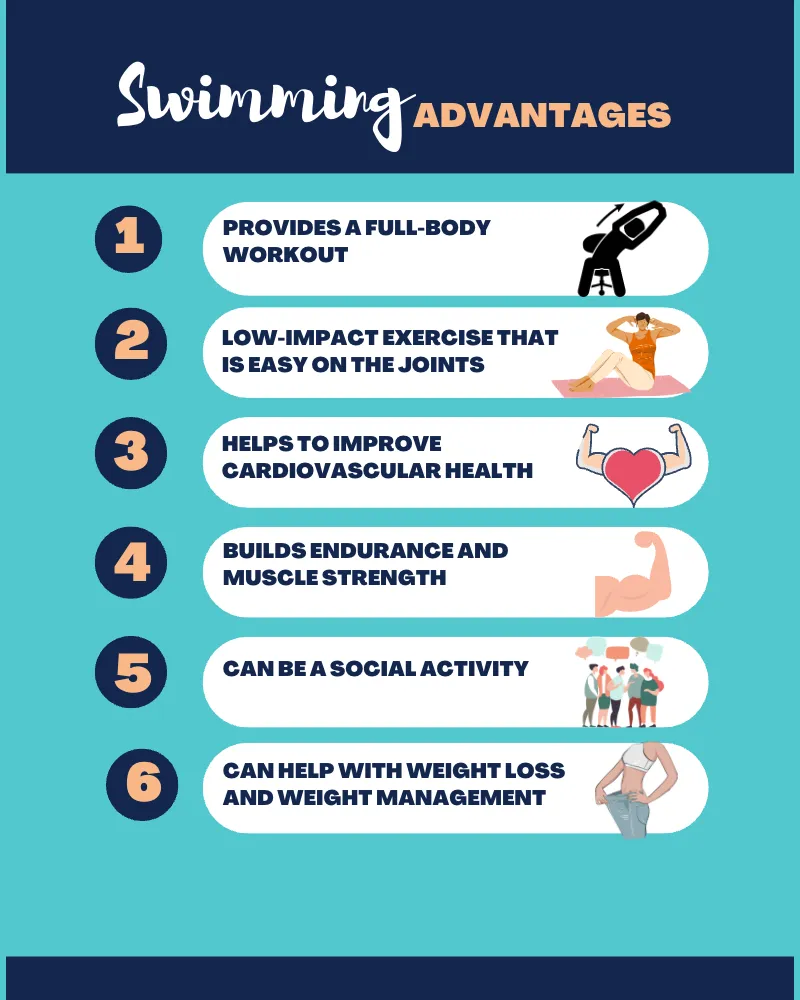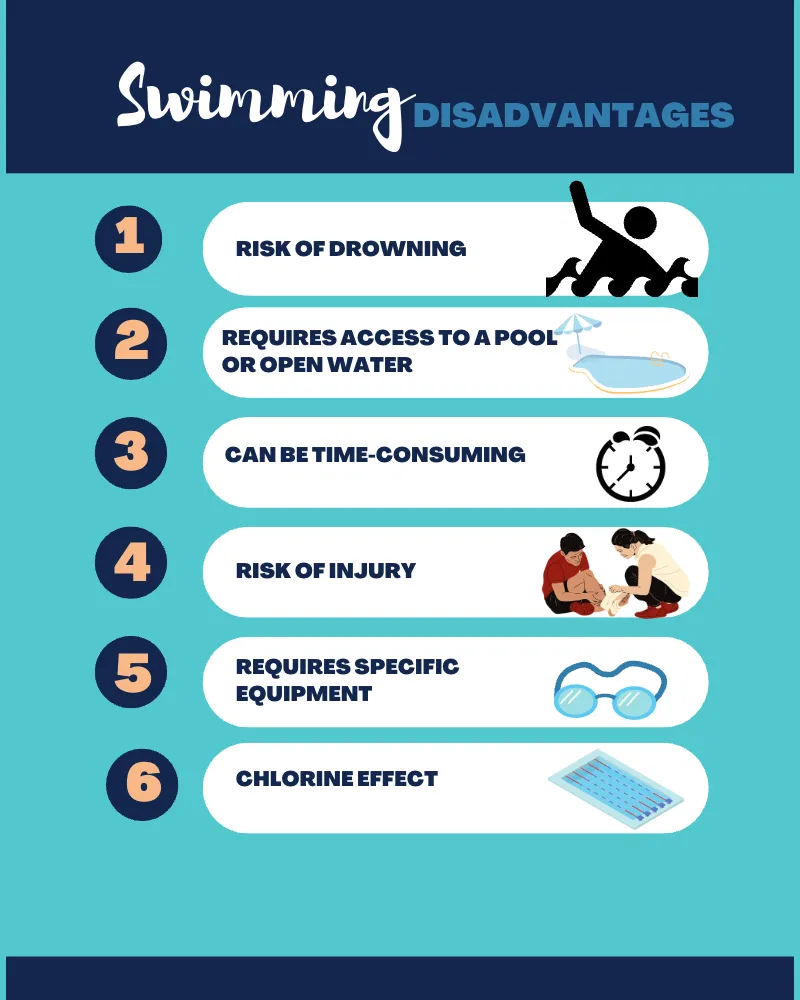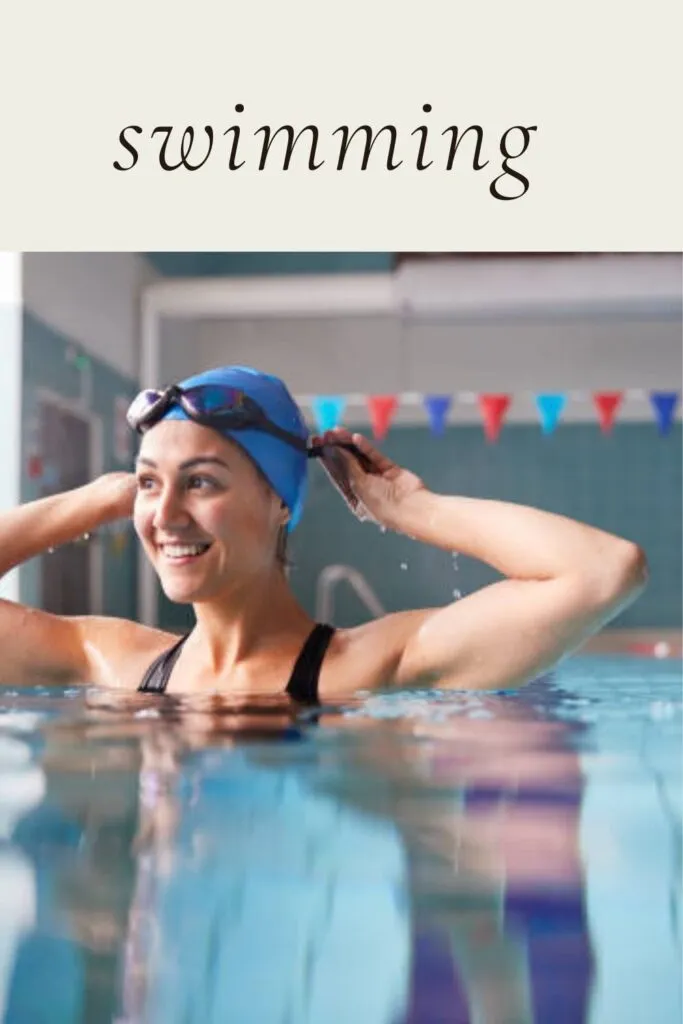Want to lose weight and tone up your body, then try swimming. This is a perfect aerobic exercise to get into shape. The feeling of weightlessness inside the water helps you to make more effort without tiring yourself in the process. This is one of the advantages of swimming and the demerits of swimming are discussed here in detail.
These are a few Swimming Advantages and Disadvantages Below:

Reduce stress on joints
This is a low-impact exercise, therefore it can be even performed by patients with limited movements. The buoyancy of water provides a weightlessness negative effect and thus reduces stress on your joints [1].
Weight loss
Although, this is a low impact exercise it helps in burning lots of calories because of its intensive nature. For example, a freestyle swimming with less effort can burn 600 calories in an hour and a fast-paced burns 943 calories in an hour. It means you will definitely lose your extra pounds if you practice it regularly [2].
Overcomes the overheating risk
When our body spends energy on building muscles and melting fat deposits during workouts then it also generates heat, which raises the body temperature and causes overheating. But since swimming involves an aqueous medium, therefore, the body temperature remains constant means no overheating [3].
Improves the physiology
Swimming gives you a full body workout as it involves active participation of the upper body and lower body, especially arms and legs for continuous movements. Therefore, it improves all the organ systems of the body, mainly the cardiovascular, nervous, and muscular [4].
Relieves mental stress
The weightlessness leaves a calm and soothing effect on the body and it also releases physical and mental stress. It also reduces the stress hormone, thus making you more energetic while boosting up your metabolism. It also makes you focus and more coordinated.
Though swimming has various advantages, it also has a fair share of disadvantages and awareness of its disadvantages helps you practice swimming in a wise manner. Thus, you can prevent any accidents or injuries [5].
It strengthens your heart
Swimming is a great workout for the heart and the lungs. This will let your body use oxygen more efficiently. As a result, your breathing and heart rates get reduced to normal resting rates. As a result, your heart becomes stronger when you swim regularly.
Swimming helps prevent diseases
Swimming daily for 30 minutes can help prevent many diseases, including diseases related to the heart. In addition, swimming can help you maintain a healthy weight. A healthy weight means a healthy body that means no diseases.
Disadvantages of Swimming

Drowning
The biggest fear and risk of getting into the water is drowning which is a bad thing about swimming. If you are new to this exercise, then follow each and every instruction of your instructor. Tell the lifeguard to keep an eye on you for extra safety. Take all precautionary measures in case of kids like life jackets and regular checks.
Chlorine effect
The one of major disadvantages of swimming in the pool is, this is mostly chlorinated and it can be absorbed by your skin and by your lungs while breathing, which can cause skin allergies or respiratory problems like asthma. It makes your skin dry and also leaves a greenish layer on your hair if you don’t wash it off after the swim.
Open swimming threats
Another disadvantage of open swimming like at sea, lake or river can increase the chances of drowning because the water currents are not stable like in pools. They are more dynamic and can pull you along with it. Aquatic animals like Jellyfishes, sharks, crabs, crocodiles, alligators, etc. are other threats as they can harm you physically. You can also injure yourself while diving into shallow water.
Over swimming
Excessive practice of swimming or the downside of daily swimming is that it can cause damage to your joints such as tendinitis in the knees [6]. It can also darken your skin because it requires minimum coverage of the body and since the body is always surrounded by water, therefore, you also don’t feel the sunburn. It can also cause infection of the ear and viruses in case of using public pools.
Fungal infections
An athlete’s foot is a fungal infection that grows in moist and warm conditions. A swimming pool provides the perfect condition for fungal infections to grow. This limitation of swimming is that anyone who does swimming daily is at risk of getting fungal infections.
Skin Allergies
While swimming in warm or freshwater lakes or ponds, you are prone to skin allergies. Swimming pools use chlorine to keep their water clean. When exposed to chlorine regularly, people get chlorine rash which is a type of skin allergy.
Water Sports
Water sports offer a thrilling experience to many enthusiasts, but they also come with their own set of drawbacks. The disadvantage of water sports can be physically challenging and demand a certain level of expertise to participate in them safely.
Despite proper training and safety gear, mishaps can still occur, leading to injuries or worse. Moreover, certain water sports require specialized equipment or training, making them an expensive pastime. Access to suitable water bodies for specific water sports can also be limited, which can hinder people living in certain regions from enjoying them.
Despite the aforementioned pros and cons of swimming, it is a great sport. There is much to learn from swimmers like Michael Phelps and their techniques.
- Master the freestyle stroke with proper body positioning, arm coordination, and breathing technique.
- Optimize starts with an explosive leg drive and underwater dolphin kicks.
- Perfect flip turns for smooth transitions and minimal speed loss.
- Incorporate interval training and technique drills for improved speed and endurance.
- Enhance strength and conditioning through dryland exercises.
- Prioritize hydration and maintain a balanced diet for optimal performance and recovery.
Conclusion
Swimming offers numerous advantages, such as improved cardiovascular health, enhanced muscular strength, and a low-impact exercise option. However, it also has potential disadvantages, including the risk of water-related injuries, the need for access to a pool or body of water, and the possibility of overexertion or exhaustion. Enjoy your swimming endeavors!


